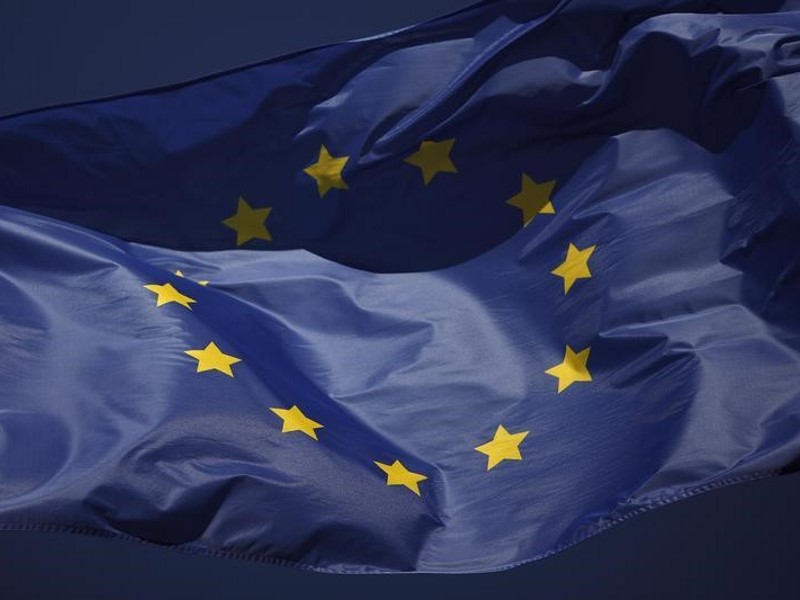- Home
- Internet
- Internet News
- EU Plans to Free Up Internet Shopping, Set Netflix Quotas
EU Plans to Free Up Internet Shopping, Set Netflix Quotas

The EU is set to unveil proposals Wednesday to make firms lift international barriers for Internet shoppers, and to force Netflix and Amazon to accept quotas for European movies and TV shows.
The plan is the latest step towards what Brussels calls a digital single market, in which the European Union's 500 million people will no longer be blocked from buying goods and services more cheaply abroad online.
Critics however have branded the separate proposal to compel streaming giants like Netflix to devote 20 percent of their content to European programming "prehistoric" and protectionist.
The plans are to be presented by the European Commission, the executive arm of the 28-nation EU, at a press conference in Brussels, but must then be approved by member states and the European parliament.
A key part aims to ban "geoblocking", whereby customers are limited to websites in their home countries for services like car hire or travel, and are blocked from seeking better prices on foreign sites.
Automatically rerouting customers to a local version of the online service will be forbidden, according to sources who have seen the proposals.
Greater access is considered vital as a commission study in March showed an increasing number of goods and services are traded over the Internet while cross-border online sales within the EU are only growing slowly.
Online retailers will also be required to sell goods to customers throughout the bloc without making them responsible for the cost of delivering them, the sources added.
However, the plan is not expected to require removal of barriers that prevent customers using streaming services such as Netflix and BBC iPlayer when they travel.
Nevertheless, audiovisual online providers, including those who sell music or electronic books, fear they will be swept up eventually by the directive.
Quotas for European content
In an overhaul of EU broadcasting rules, the commission is set to require video-on-demand providers like Netflix and Amazon Prime to devote 20 percent of their content in Europe to European movies and TV programmes.
Fighting the dominance of Hollywood is a major priority for France, which has for years subsidised its own national film industry through a special tax on privately-owned broadcasters that rely heavily on US-made content.
In addition, the EU hopes to tax US web streamers in order to help fund European movies and TV shows.
Netflix has said it is against quotas or making contributions to film subsidies, instead putting a priority on developing its own content, including in Europe.
Netflix already devotes more than a fifth of its catalogue to European content, EU sources said.
Earlier this month, the website released its first major French-language series "Marseille", largely seen as a sign of its commitment to bring ambitious, non English-language productions to Europe.
For the latest tech news and reviews, follow Gadgets 360 on X, Facebook, WhatsApp, Threads and Google News. For the latest videos on gadgets and tech, subscribe to our YouTube channel. If you want to know everything about top influencers, follow our in-house Who'sThat360 on Instagram and YouTube.
Related Stories
- Samsung Galaxy Unpacked 2025
- ChatGPT
- Redmi Note 14 Pro+
- iPhone 16
- Apple Vision Pro
- Oneplus 12
- OnePlus Nord CE 3 Lite 5G
- iPhone 13
- Xiaomi 14 Pro
- Oppo Find N3
- Tecno Spark Go (2023)
- Realme V30
- Best Phones Under 25000
- Samsung Galaxy S24 Series
- Cryptocurrency
- iQoo 12
- Samsung Galaxy S24 Ultra
- Giottus
- Samsung Galaxy Z Flip 5
- Apple 'Scary Fast'
- Housefull 5
- GoPro Hero 12 Black Review
- Invincible Season 2
- JioGlass
- HD Ready TV
- Laptop Under 50000
- Smartwatch Under 10000
- Latest Mobile Phones
- Compare Phones
- Moto G15 Power
- Moto G15
- Realme 14x 5G
- Poco M7 Pro 5G
- Poco C75 5G
- Vivo Y300 (China)
- HMD Arc
- Lava Blaze Duo 5G
- Asus Zenbook S 14
- MacBook Pro 16-inch (M4 Max, 2024)
- Honor Pad V9
- Tecno Megapad 11
- Redmi Watch 5
- Huawei Watch Ultimate Design
- Sony 65 Inches Ultra HD (4K) LED Smart TV (KD-65X74L)
- TCL 55 Inches Ultra HD (4K) LED Smart TV (55C61B)
- Sony PlayStation 5 Pro
- Sony PlayStation 5 Slim Digital Edition
- Blue Star 1.5 Ton 3 Star Inverter Split AC (IC318DNUHC)
- Blue Star 1.5 Ton 3 Star Inverter Split AC (IA318VKU)

















